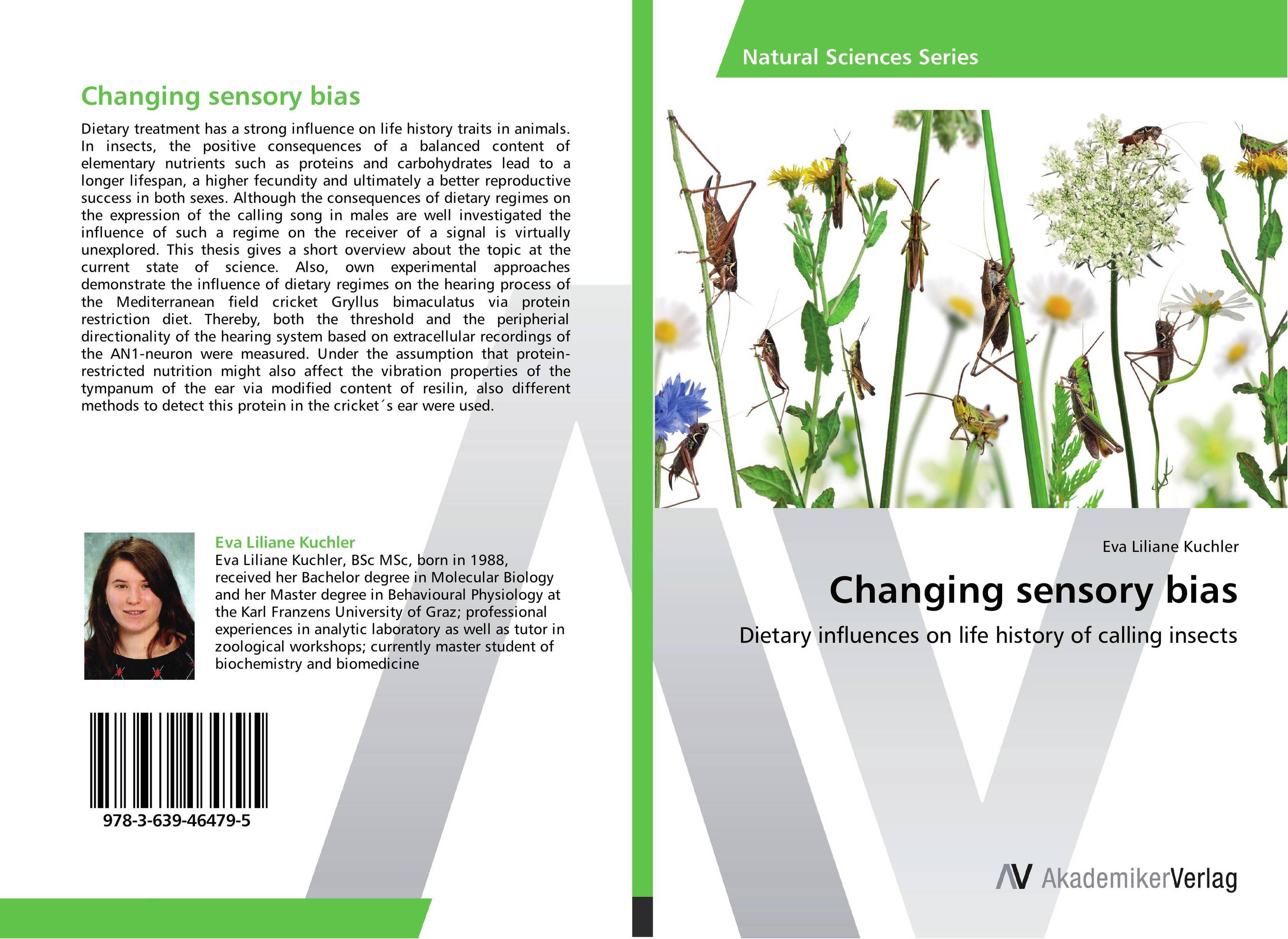| Поиск по каталогу |
|
(строгое соответствие)
|
- Профессиональная
- Научно-популярная
- Художественная
- Публицистика
- Детская
- Искусство
- Хобби, семья, дом
- Спорт
- Путеводители
- Блокноты, тетради, открытки
Changing sensory bias. Dietary influences on life history of calling insects

В наличии
| Местонахождение: Алматы | Состояние экземпляра: новый |

Бумажная
версия
версия
Автор: Eva Liliane Kuchler
ISBN: 9783639464795
Год издания: 2013
Формат книги: 60×90/16 (145×215 мм)
Количество страниц: 88
Издательство: AV Akademikerverlag
Цена: 22303 тг
Положить в корзину
| Способы доставки в город Алматы * комплектация (срок до отгрузки) не более 2 рабочих дней |
| Самовывоз из города Алматы (пункты самовывоза партнёра CDEK) |
| Курьерская доставка CDEK из города Москва |
| Доставка Почтой России из города Москва |
Аннотация: Dietary treatment has a strong influence on life history traits in animals. In insects, the positive consequences of a balanced content of elementary nutrients such as proteins and carbohydrates lead to a longer lifespan, a higher fecundity and ultimately a better reproductive success in both sexes. Although the consequences of dietary regimes on the expression of the calling song in males are well investigated the influence of such a regime on the receiver of a signal is virtually unexplored. This thesis gives a short overview about the topic at the current state of science. Also, own experimental approaches demonstrate the influence of dietary regimes on the hearing process of the Mediterranean field cricket Gryllus bimaculatus via protein restriction diet. Thereby, both the threshold and the peripherial directionality of the hearing system based on extracellular recordings of the AN1-neuron were measured. Under the assumption that protein-restricted nutrition might also affect the vibration properties of the tympanum of the ear via modified content of resilin, also different methods to detect this protein in the cricket?s ear were used.
Ключевые слова: Crickets, GRYLLUS BIMACULATUS, hearing process, Sex Differences, life history traits, dietary regimes, calling parameters, nutritional balance, acoustic signalling, resilin



